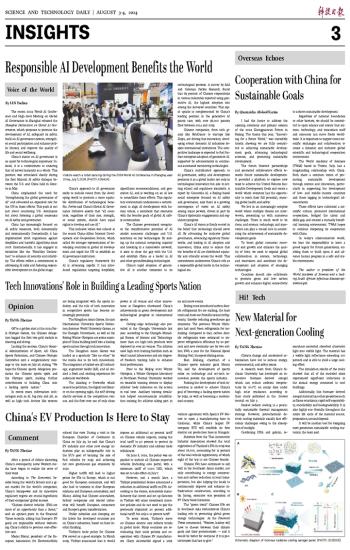
I had the honor to address the opening ceremony and plenary session of the 2024 Zhongguancun Forum in Beijing. The theme this year, "Innovating for a Better World," was incredibly timely, showing we are fully committed to achieving sustainable development goals, advancing technological sciences, and promoting sustainable development.
The forum fostered partnerships and promoted collaborative efforts towards future sustainable development. It provided a platform to explore new ways to achieve the United Nations Sustainable Development Goals and create a world where everyone has the opportunity to reach their full potential, ensuring global health and safety.
We live in an increasingly complex world where multiple threats are interwoven, presenting us with numerous challenges. There is much work to be done, and science, technology, and innovation can play a crucial role in accelerating the achievement of sustainable development goals.
To boost global economic recovery and growth and enhance the quality of lives, we need to expand global collaboration in science, technology, and innovation and accelerate the development and adoption of emerging technologies.
Countries should also collaborate to promote green and low-carbon growth and enhance digital connectivity to achieve sustainable development.
Regardless of national boundaries or other barriers, we should be committed to open science and ensure that science, technology, and innovation staff and resources can move freely worldwide. It is important to support more scientific exchanges and collaboration to create a dynamic and inclusive global scientific and technological cooperation environment.
The World Academy of Sciences (TWAS) based in Trieste, Italy, has a longstanding relationship with China. Both share a common vision of promoting sustainable development through science and innovation, particularly in supporting the development of low- and middle-income countries and those lagging in technological advancements.
These efforts have cultivated a scientific culture, promoted international cooperation, bridged the talent and skills gap, and created a mutually beneficial learning environment. TWAS hopes to continue deepening its cooperation with China.
In today's interconnected world, we bear the responsibility to leave a proud legacy for future generations, enabling them to build upon it and advance human progress in a safe and stable environment.
The author is president of the World Academy of Sciences and a leading South African infectious diseases epidemiologist.


 Next
Next




